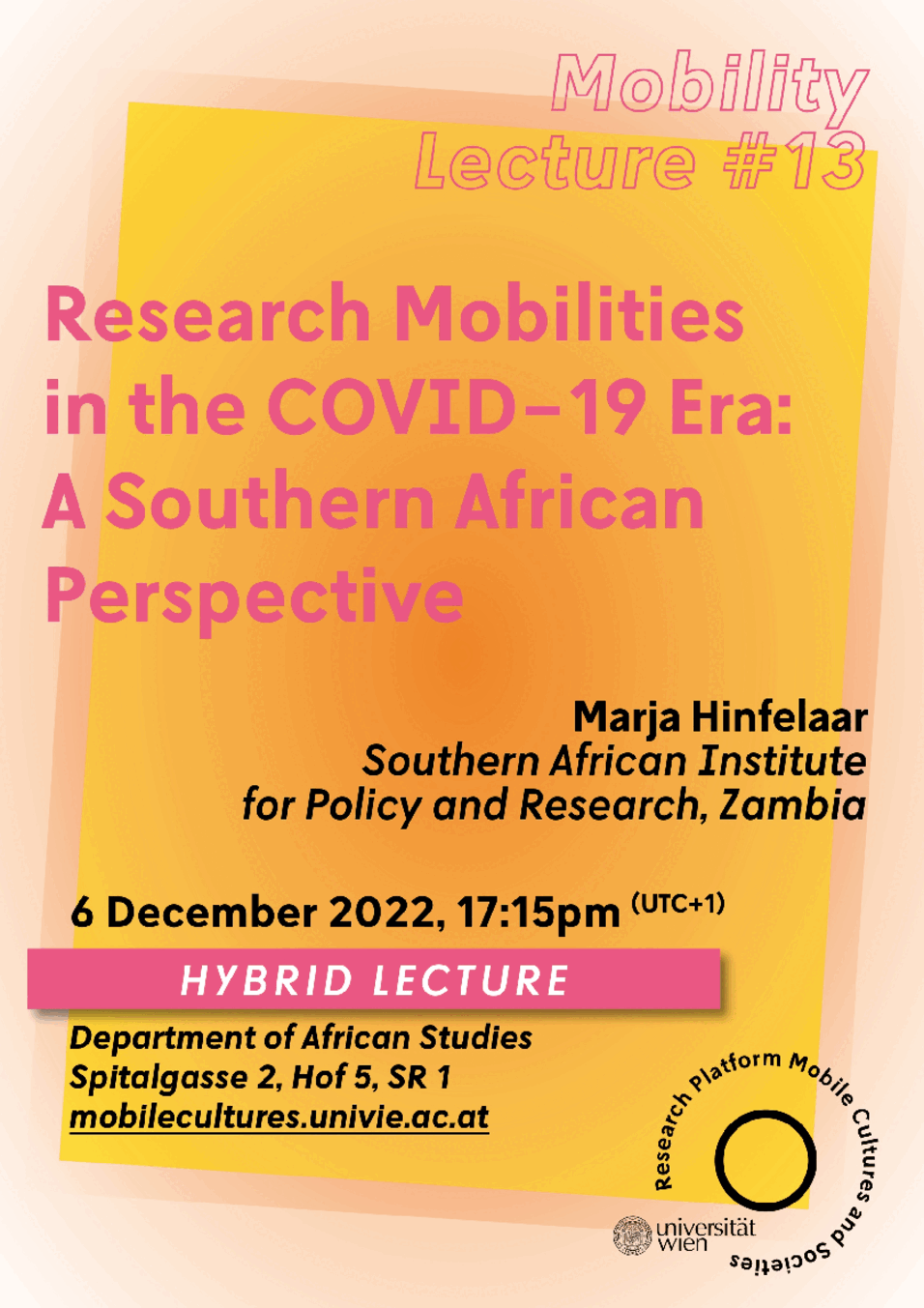The COVID-19 pandemic hastened a process that was already under debate, namely the reshaping of north-south cooperation in the academic world. The lack of physical mobility led to a virtual academic mobility, in which physical presence was no longer a requirement to take part in conferences, seminars and journal board meetings. It reignited the debate on knowledge co-production, knowledge construction and the role of the local research assistant. The increased research demands on the south during the pandemic to fill the fieldwork void led to an increased competition on the ground, but also resulted in an enhanced regional cooperation.
Moving toward the post-COVID 19 era, patterns of uneven mobility and cooperation are remerging, as they are still fundamentally steeped in matters of access to resources and consequent power/influence. This lecture uses the pandemic-era experience of a research institute in Zambia to add on a Southern African perspective to illuminate these dynamics.
Marja Hinfelaar, PhD, is Director of Research and Programmes at the Southern African Institute for Policy and Research (SAIPAR), Lusaka, Zambia. Marja received her PhD in History in 2001 from the University of Utrecht, the Netherlands, where her dissertation focused on the history of women's organisations in Zimbabwe. She is the co-editor of One Zambia, Many Histories. Towards a History of Post-colonial Zambia (Brill, Leiden 2008), Living the End of Empire. Politics and Society in Late Colonial Zambia (Brill, Leiden, 2011), co-author of Governing Extractive Industries: Politics, Histories, Ideas (Oxford University Press, 2018) and co-editor of Democracy and Electoral Politics in Zambia (Brill, 2020). For 10 years, she was based at the National Archives of Zambia. She is a member of the editorial board of the Journal of Southern African Studies and Zambia Social Science Journal. Marja has been resident in Zambia since 1997.
Hosted in cooperation with the Afrika Kolloquium of the Department for African Studies, University of Vienna
This event will be streamed. The link to the video stream is the following:

